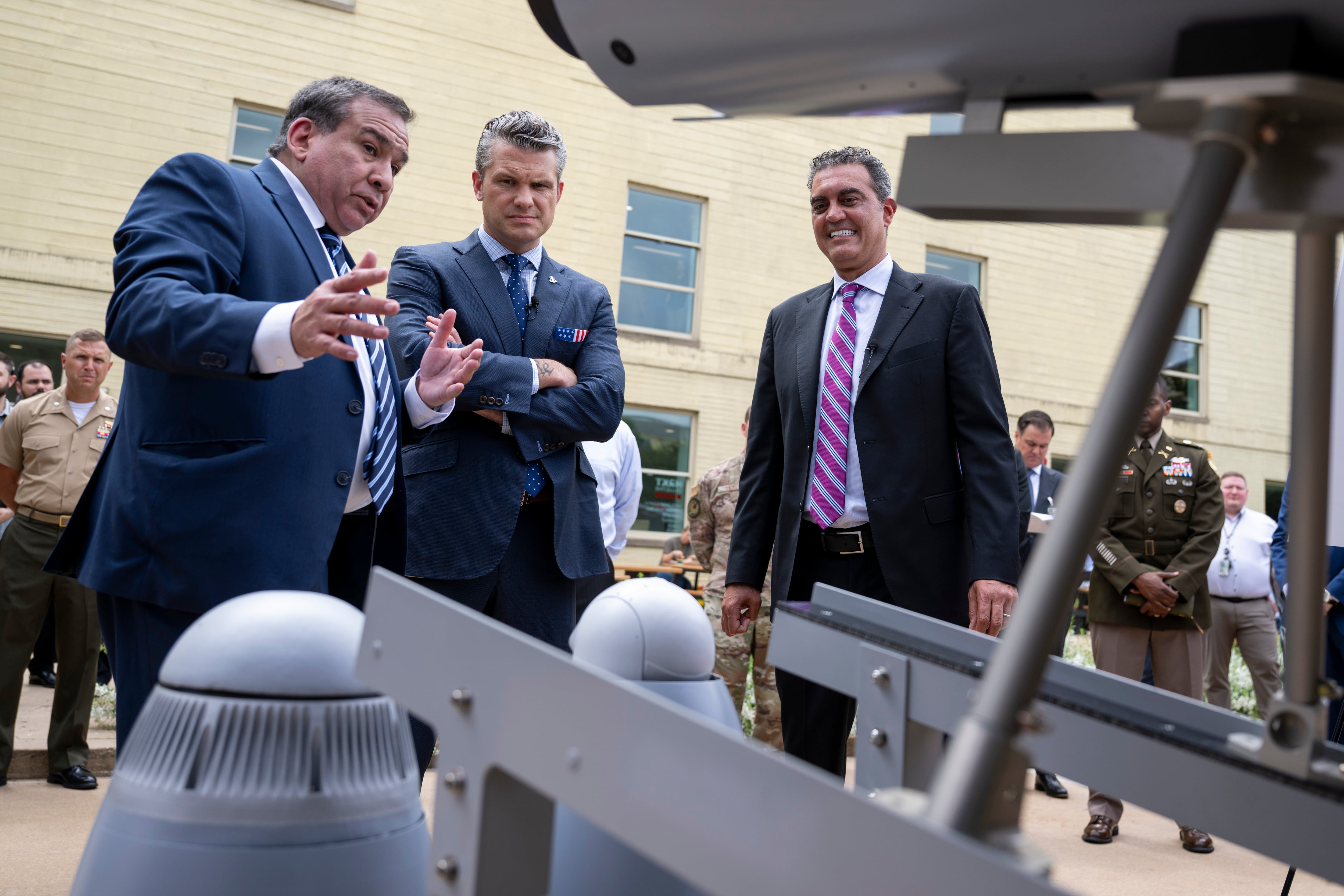WASHINGTON — With a special mention in the White House’s National Security Strategy, artificial intelligence has officially become a national priority. But how the Trump administration plans to advance the technology remains unclear.
The National Security Strategy, released in December, identified artificial intelligence as an emerging technology “critical to economic growth and security,” noting that “from self-driving cars to autonomous weapons, the field of artificial intelligence, in particular, is progressing rapidly.”
AI is also expected to get a mention in the National Defense Strategy, to be released later this month. And that is a welcome inclusion, said Paul Scharre, a technology expert with the Center for a New American Security think tank.
He warns that AI has “huge implications” for national security, and not just for tactical reasons.
“Artificial intelligence and automation could also bring about broader economic and political [factors] that affect foreign policy and international relations,” Scharre said. “For example, if we see significant economic disruption caused by automation, how nations weather these challenges may play a major role in which nations remain global leaders.”
The economic dangers of AI appear to be a primary concern for the authors of the National Security Strategy. That document specifically calls out China for challenging American technological superiority with its investments in AI — as well as its stealing of U.S. intellectual property in that area.
“Breaches of U.S. commercial and government organizations also provide adversaries with data and insights into their target audiences,” the NSS reads. “China, for example, combines data and the use of AI to rate the loyalty of its citizens to the state and uses these ratings to determine jobs and more.”
China’s interest in AI has bled to the highest levels, with eagle-eyed Chinese bloggers noting that President Xi Jinping prominently displays books about AI and machine learning — including Pedro Domingos’ “The Master Algorithm” and Brett King’s “Augmented” — on his bookshelf. And China’s focus has not been lost on American industry.
RELATED

At a November event hosted by Scharre’s team at CNAS, Eric Schmidt, CEO of Google parent company Alphabet and the chairman of the Pentagon’s Defense Innovation Board, said the U.S. needs to “get our act together” if it doesn’t want to fall behind on technology that could determine the future of both the defense and commercial sectors.
In 2016, Beijing released a formal artificial intelligence strategy, which Schmidt said should set alarm bells ringing in America.
“It’s pretty simple. By 2020 they will have caught up. By 2025 they will be better than us. By 2030 they will dominate the industries of AI,” Schmidt said, describing the plan. And, he said, Beijing is on track to meet that, with the CEO saying he predicts China will reach parity with the U.S. sometime in the next five years.
“They have announced their strategy, so you’re crazy to treat them as somehow second-class citizens,” Schmidt, who since the event has announced he is stepping down as Alphabet CEO, added about China. And if America thinks China “won’t produce people who can do this, you’re wrong.”
Google appears to be putting its money where Schmidt’s mouth is. The tech giant announced in December that it would be opening an AI center in Beijing, led by one of the company’s top AI thinkers, with the specific goal of tapping into expertise inside China.
Industry role
In the first year of the Trump administration, officials from both the Pentagon and the Office of Management and Budget have indicated they want to see industry take the lead in developing new technologies, with the department encouraging investment in a few core areas of specialization.
That plays out in the NSS, which emphasizes that the research should be done in the private sector.
“The U.S. Government will use private sector technical expertise and [research and development] capabilities more effectively. Private industry owns many of the technologies that the government relies upon for critical national security missions,” the strategy reads. “The Department of Defense and other agencies will establish strategic partnerships with U.S. companies to help align private sector R&D resources to priority national security applications.”
Schmidt, at least, would appear open to such a partnership. In November, he called for a Sputnik moment — a national movement to focus research efforts and funding on understanding this technology and maintaining a definitive technological edge.
“This is the moment where the government, collectively with private industry, needs to say these technologies are important,” he said. “If you believe this is as important as I suspect all of us do, and certainly I believe, then we need to get our act together as a country.”
However, the National Security Strategy also contains language that some say could hamstring America’s ability to bring the best and brightest minds on this issue.
Schmidt said tough immigration rules block some of the world’s best and brightest from coming to the United States. “Would you rather have them building AI somewhere else, or would you rather have them building here?” he asked.
Aaron Mehta was deputy editor and senior Pentagon correspondent for Defense News, covering policy, strategy and acquisition at the highest levels of the Defense Department and its international partners.
More In








